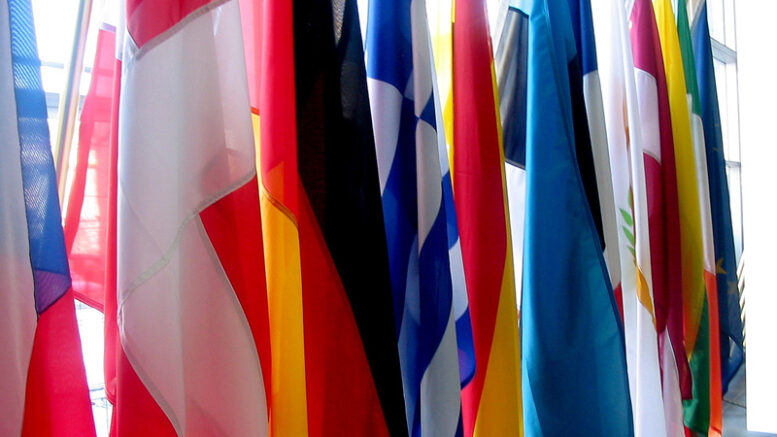European Union Finance ministers meeting in an all-night video-conference session Tuesday, adjourned their marathon meeting at 8 o’clock Wednesday morning no closer to reaching a consensus on how to jointly finance member countries’ efforts to combat the coronavirus crisis or underwrite a regional post-emergency financing plan to rebuild the economies hardest-hit by the crisis.
Eurogroup President Mário Centeno announced Wednesday morning via Twitter that “after 16h of discussions we came close to a deal but we are not there yet.” He said the talks would resume again on Thursday.
At stake in the talks are approximately 500 billion euros worth of aid to underwrite measures to help cushion governments, companies and individuals across the EU from the economic slump and to finance recovery from the pandemic. Without an accord for a coordinated response to the emergency, individual governments would be forced to borrow money on their own to rebuild their way out of the economic downturn caused by the crisis.
► News Sources: El Diario, El País and Europa Press …
Repeated calls in recent weeks from several EU countries led by Italy and Spain for a “coronabonds” finance plan to jointly raise monies on global debt markets that can be drawn down by individual countries needing to rebuild their economies in the coming months were again met by stiff resistance by Holland, Germany, Austria and Finland during the overnight session.
Claiming that the majority of EU member states were against the idea of “coronabonds”, Dutch finance minister Wopke Hoekstra explained on his Twitter account on Monday that his country “was and remains against the idea of #Eurobonds, we think this will create more problems than solutions for the EU. We would have to guarantee debts of other countries which isn’t reasonable.”
On Thursday, the ministers will return to the negotiating table hoping to hammer out an accord that includes some combination of financial assistance from three possible sources. One is the European Stability Mechanism (ESM), the EU’s financial bailout fund set up after 2008, with the possibility of offering lines of credit worth up to 2 percent of the GDP economic output of member countries.
Another option on the table is the creation of a region-wide Guarantee Fund that would be managed by the European Investment Bank for the mobilization of some 200 billion in capital assistance for European companies. A third option involves an employment reinsurance scheme of 100 billion euros to back individual temporarily unemployment payouts by individual countries to workers laid off during the coronavirus crisis.
► Read more in English at: Reuters, Politico and Bloomberg …
► Click to read more news about Spain’s Coronavirus crisis …
Check out more news from Spain about:
► Animal Welfare ► Corruption/Transparency ► Discrimination ► Education ► Elections ► Environment & Sustainability ► Fair Trade & Development Aid ► Healthcare ► Historical Memory ► Housing & Homelessness ► Human Rights ► Labour & Unemployment ► LGBT+ ► Politics ► Poverty ► Refugees & Migration ► Technology & Social Enterprise ► War & Peace ► Women’s Rights

All images at ProgressiveSpain.com are the copyright of their respective authors/owners and are reproduced here for non-commercial, journalistic purposes in accordance with Fair Use doctrine. All other content is Copyright © 2015-2020 ProgressiveSpain.com and is licensed under a Creative Commons Attribution-NonCommercial-ShareAlike 4.0 International License.

